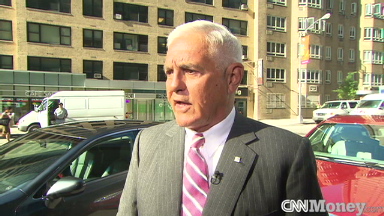
[ad#post_ad]GM vice-chairman Bob Lutz was interviewed on Fox Business News. The entire interview can be watched at the bottom of the post.
Just as vehicle line director Tony Posawatz was asked by Fox the other day, Lutz was also asked what the Chevy Volt's MPG will be when it is running in charge-sustaining mode, after the first 40 all-electric miles have been driven.
As someone who has followed this Volt story since day one, along with many of you, I have found that Bob Lutz cannot help but be honest. GM has never officially acknowledged this number though at the time of the initial concept revelation they mentioned 50 MPG was the goal. However, in those days the generator was to be a 1 L turbocharged 3 Cylinder, and not the normally aspired 1.4L 4 cylinder it turned out to be.
When now asked what the Volt's fuel economy would be in charge sustaining mode, Lutz replied as follows:
We haven't published it and it's not finalized. Once it's running on pure gasoline it will be like a highly economical vehicle in that size class. It will be exceptionally good mileage but it obviously won't be comparable to what it is when it runs on electric.
The vehicle is conceived primarily for urban or suburban use. It's for that 80 percent of Americans who travel 40 miles or less per day; they will never use a drop of fuel. If you have a 60 mile commute, you'll have 40 miles purely electric, the remainder of the mileage on very good gasoline mileage, and your average fuel economy will be somewhere between 120 and 150 miles per gallon.
So let's do the math.
On a 60 mile commute, the first 40 miles are electric and the next 20 are on gasoline. At an average of 120 mpg, that would mean 0.5 gallons are used in those 20 miles (40 mpg). At 150 mpg, it would mean 0.4 gallons are used in those 20 miles (50 mpg).
Thus the Volt will average between 40 and 50 mpg in charge sustaining mode. Good enough for me, how about you?
Thanks to Philerup for the tip!
Watch the latest business video at FOXBusiness.com










